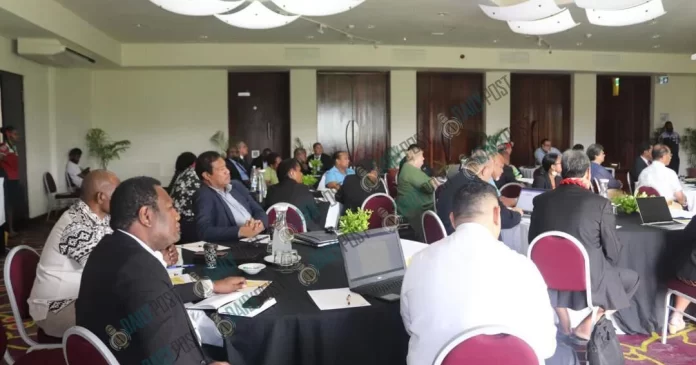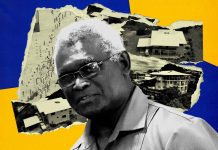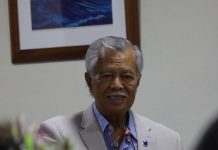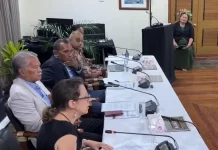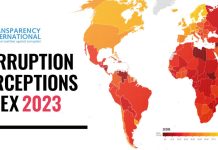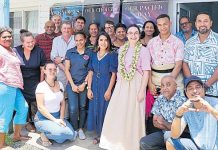-Pacific Parliamentarians, Supreme Audit Institutions (SAIs), and Anti-Corruption Bodies (ACBs) are working together this week in Vanuatu to strengthen their key role as Triangle of Integrity partners to boost their oversight of corruption capture and prevention, with technical assistance from the United Nations Office on Drugs and Crime (UNODC) and the Global Organisation of Parliamentarians Against Corruption (GOPAC).
Recognising that tackling corruption is a whole-of-society issue, while respecting the separate mandates of Integrity agencies, the Triangle of Integrity workshop will focus on how the partners’ individual strengths can combine for a larger national and regional impact against corruption, in line with UNODC’s custodianship of the UN Convention Against Corruption (UNCAC) and GOPAC’s role in assisting parliamentarians to work together to combat corruption, strengthen good government, and uphold the rule of law.
“Under the umbrella of UNCAC and the Pacific anti-corruption roadmap, the Teieniwa Vision, the relevance of cooperation has generated comprehensive efforts at the international level in recent years to identify the appropriate mechanisms and measures that would help countries and authorities to more effectively counter corruption,” said UNODC Pacific Anti-Corruption Adviser, Marie Pegie Cauchois.
Cauchois said that consensus on good practices in SAIs, ACBs, and Parliament cooperation would build on Pacific countries’ commitments under UNCAC and the Teieniwa Vision.
Vanuatu’s Auditor General (AG), Sandy Caleb, said the workshop focuses on four key institutions: parliament, anti-corruption agencies, leadership code agencies, and Ombudsman’s offices, including officers from the audit office in Vanuatu and the Pacific regions.
Its purpose is to encourage collaboration, engagement, and the exchange of ideas among officials responsible for overseeing financial matters and public sector management. The workshop aims to address the roles of leadership within these institutions.
The primary goal of the workshop is to foster cooperation among these institutions to combat corruption in the Pacific region, he said.
“GOPAC recognises the potential for perceptions of a conflict of interest as the different Pacific national frameworks give different oversight and implementation roles to the Triangle of Integrity partners – genuine discussion and respect for the rule of law helps Parliament, the Government, and agencies themselves work with their independent integrity agencies,” said Dr Uhilamoelangi Fasi, Chair of the Tonga Parliament Standing Committee on Anti-Corruption and GOPAC Tonga.
“GOPAC welcomes the partnership with UNODC to examine the Triangle of Integrity relationships from an evidence-based perspective, with genuine consultation between parliamentarians, Auditors-General, Ombudsmen, and integrity agencies.”
The Pacific Association of Supreme Audit Institutions (PASAI) is the official association of supreme audit institutions in the Pacific region. PASAI recognises the need to develop partnerships with its work aligned with the goals of the Pacific Plan to achieve stronger national development through better governance.
The Ombudsman of Vanuatu, Hamlison Bulu, said corruption is the abuse of power for personal gain or unjust enrichment.
“Corruption undermines our Sustainable Development Goals (SDGs) affecting development and causing economic loss and inefficiency which in the greater future only leads to poverty and inequality,” he said.
“Corruption is generally not the weapon of the weak. That is why the importance of interagency and Parliament collaboration and national and regional alliances of relevant authorities along with Parliament anti-corruption committees in joining the efforts to prevent and counter corruption is widely acknowledged.”
In its 2023 Accountability and Transparency Report, PASAI highlights the crucial role of SAIs as public oversight institutions responsible for helping the Parliament or Senate (and ultimately the public) hold governments accountable for their stewardship of public resources.
This Pacific regional Dialogue is designed to provide in-depth discussions with a view to identifying the areas of cooperation, exchange, and joint actions. It will also act as a platform for peer-to-peer learning from the experience and good practices from other countries and for discussions on the ways to enhance the effectiveness and operational mechanisms of cooperation in the region.
UNODC is producing a Pacific Companion guide — Enhancing Integrity System Collaboration in the Pacific Region, building on UNODC’s extensive work through the Abu Dhabi Declaration Programme (ADDP) to promote the role of supreme audit institutions in tackling corruption and enhance their collaboration with anti-corruption bodies.
UNODC supports the two-day CDF conference and development of the CDF toolkit through the UN Pacific Regional Anti-Corruption Project (UN-PRAC), backed by the New Zealand Aid Programme.
GOPAC Oceania is assisted financially by the GOPAC Office in Qatar and the Government of Qatar. UNODC also partners with Qatar’s international Rule of Law and Anti-Corruption Center (ROLACC) and the Supreme Committee for Delivery and Legacy of Qatar to safeguard sport from corruption and crime.
Ombudsman Bulu acknowledged UNODC and GOPAC for supporting this regional collaboration with the different actors within the region.
AG Sandy added that this event marks the first time these institutions are participating in a collective workshop focused on anti-corruption. While other institutions have conducted their workshops, this marks a significant occasion for them to convene and discuss issues related to corruption.
This workshop was initially planned for Tonga, but it had to be relocated to Vanuatu due to a situation preventing it from taking place in Tonga.
Participants are highly interested in the topics being addressed, particularly those related to Commissions of Inquiry. The workshop serves as a platform for dialogue and discussion on anti-corruption matters, emphasising the importance of collaboration among the participating institutions.
The three-day workshop commenced this Tuesday and concludes Thursday.
SOURCE: VANUATU DAILY POST/PACNEWS






